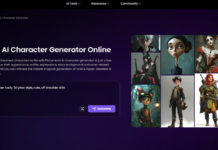Photo by Solen Feyissa on Unsplash
The rapid convergence of human and artificial intelligence (AI) stands as one of the most transformative advancements of the 21st century. As AI grows more sophisticated, it can now perform tasks previously thought to be purely human: from recognizing complex patterns to learning from experience and making independent decisions. The ramifications of this technological evolution are profound, raising significant questions about the future of human cognition. Will AI enhance our intellectual capabilities or render us more dependent and less sharp?
Augmenting Human Intelligence
AI can serve as a powerful tool to amplify human intelligence. Through its ability to process vast amounts of data at lightning speed, AI can provide insights that are either impossible or too time-consuming for humans to reach on their own. In fields such as medicine, AI is already proving its worth. For instance, AI-powered diagnostic tools are helping doctors detect diseases like cancer and heart conditions with higher accuracy than traditional methods, offering insights from vast pools of patient data and medical research.
Similarly, AI can revolutionize education. AI-powered tutoring systems are being developed to provide personalized learning experiences, adapting lessons in real time to fit each student’s pace and learning style. This not only enhances understanding but also allows for continuous progress, regardless of whether a student is excelling or struggling in a particular subject.
In creative fields, AI-driven tools are offering new avenues for innovation. Musicians, artists, and writers are leveraging AI for idea generation, as well as to simulate and experiment with concepts they wouldn’t have thought of without computational assistance.
Moreover, AI’s role in automating routine tasks is invaluable. By handling mundane or repetitive work, AI frees humans to focus on more complex, creative, and intellectually demanding pursuits. This could lead to significant intellectual growth, as humans devote more time to tasks that push their cognitive limits.
The Risk of Intellectual Dependency
However, there are growing concerns that AI could weaken human cognitive abilities over time. As we grow more dependent on AI for decision-making and problem-solving, there is a real risk that our critical thinking skills could atrophy. For instance, while AI-powered calculators, language translation apps, and navigation tools have made life more convenient, they may also reduce the need for individuals to perform these tasks on their own. Over time, this reliance could limit our ability to solve problems independently.
AI-powered tutoring systems, while beneficial for personalized education, also present a risk if students become overly dependent on them. When AI steps in to handle even the most basic problem-solving tasks, students may miss out on learning how to think critically and adapt when faced with challenges.
The potential for AI to create a widening “digital divide” is another concern. Those with access to the latest AI technologies will have a distinct advantage over those without, potentially exacerbating existing social inequalities. In such a future, cognitive skills may differ not based on natural ability but on the availability of AI tools.
AI and Human Behavior
AI’s impact on human behavior can be seen in several positive applications, particularly in industries where personalization enhances user experiences. For instance, in the online gambling sector, AI-powered algorithms are used to maintain fairness, identify potential cheating, and ensure secure transactions. By analyzing player behavior and preferences, AI can help online platforms offer tailored experiences, making the gaming environment more enjoyable and engaging for players.
A great example is the use of AI to recommend responsible gambling tools, such as setting deposit limits or time reminders, which can help users manage their habits effectively. Websites like CasinoBonusCA provide valuable information and reviews about online casinos offering bonuses to Canadian players. They leverage AI technology to help players make well-informed decisions about where to play, ensuring a safe and enjoyable online gambling experience. By promoting transparency and safety, AI enhances trust in these platforms while supporting responsible gaming.
Striking a Balance
In conclusion, AI’s influence on human intelligence is both promising and perilous. It has the potential to enhance our cognitive abilities, foster creativity, and provide unprecedented access to knowledge. Yet, if not managed carefully, it could also lead to intellectual laziness, dependency, and even deepen social divides. To harness the full potential of AI, it is crucial to develop ethical frameworks and regulatory guidelines that prioritize human well-being. Only then can we ensure that AI serves as a tool for human advancement rather than a crutch that stifles our natural abilities.
By thoughtfully integrating AI into our lives, we can navigate its complexities, using it to unlock new levels of human potential while mitigating its risks.
Write and Win: Participate in Creative writing Contest & International Essay Contest and win fabulous prizes.















